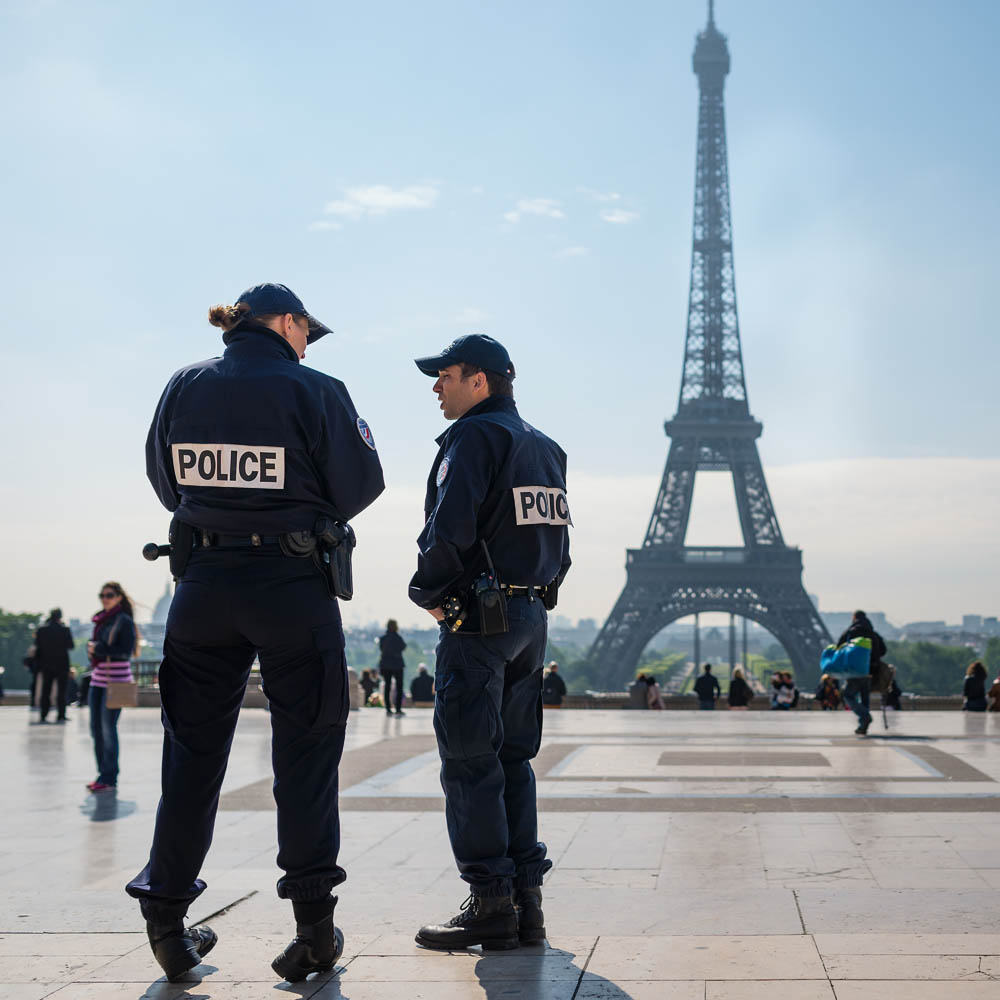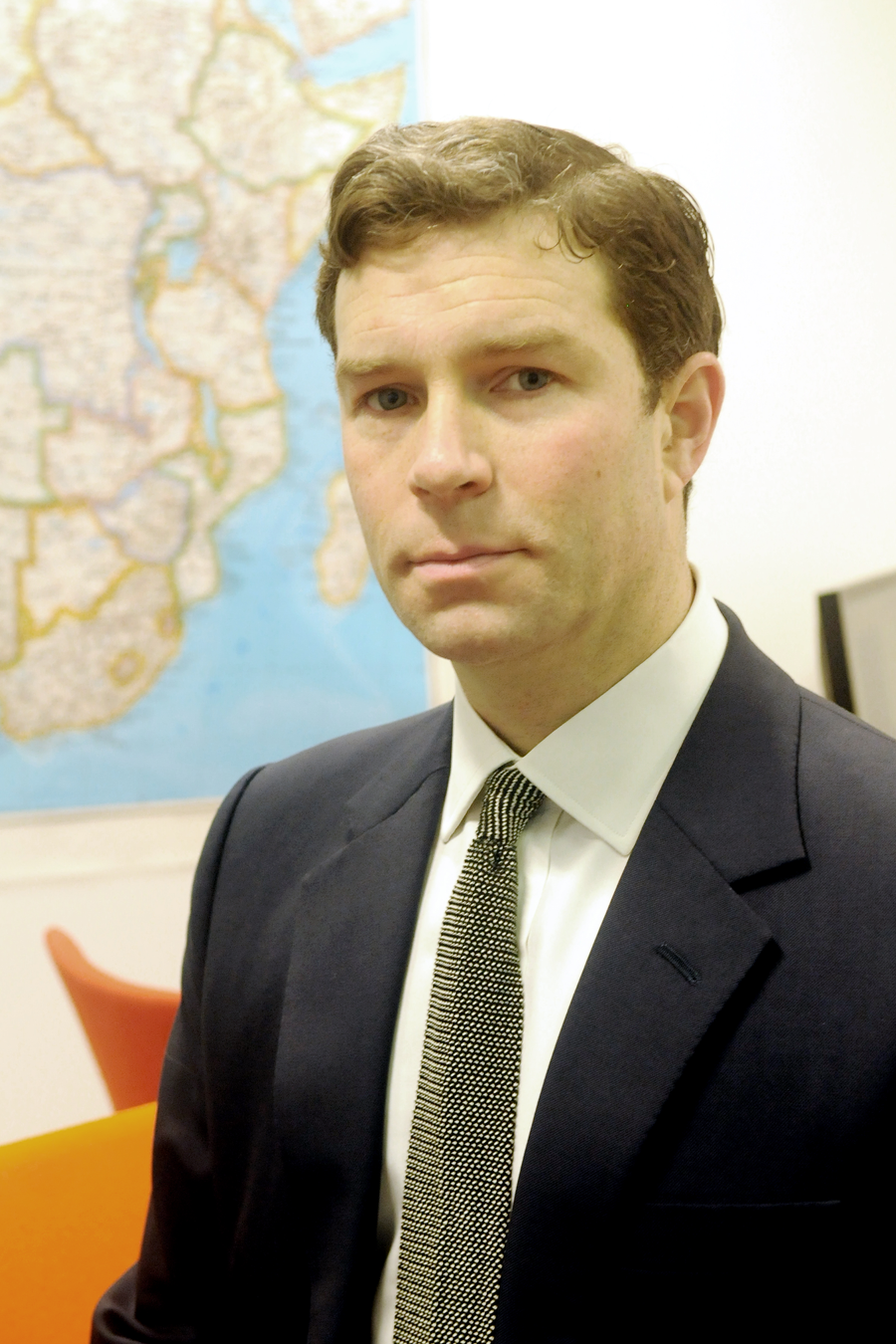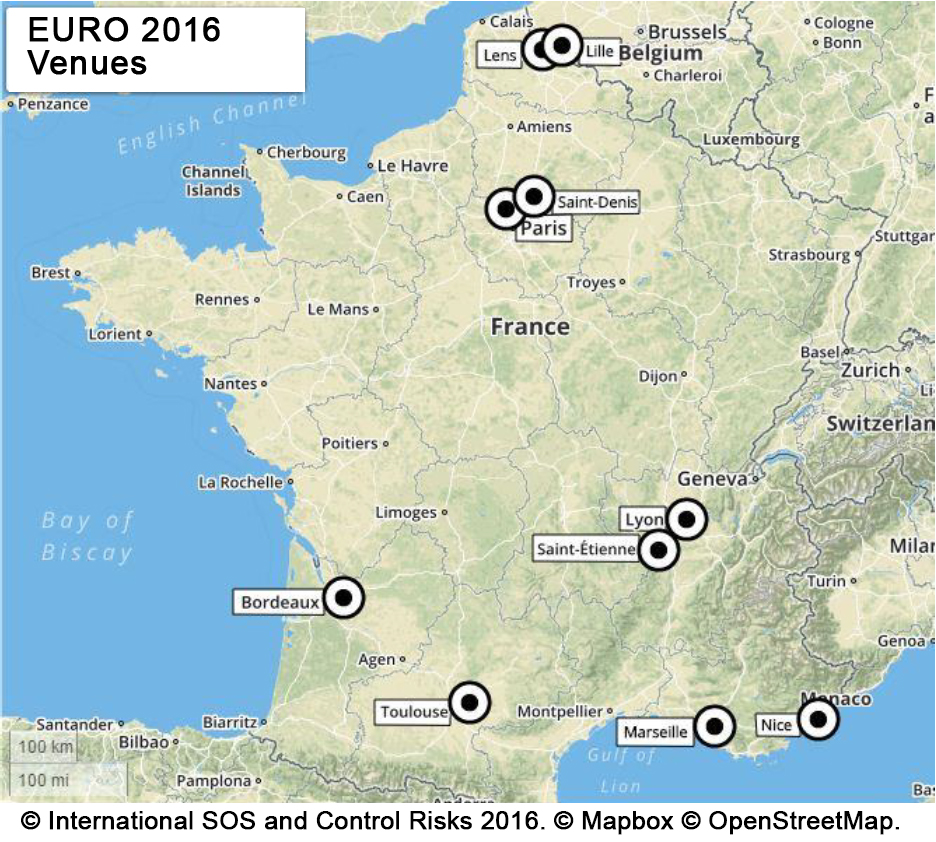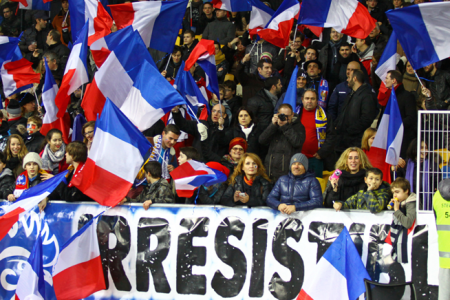Euro 2016: playing tough with event security
Tim Compston, Features Editor at SecurityNewsDesk, takes a look at the latest challenge for event security.
The UEFA Euro 2016 football tournament – the largest sporting event in Europe this year – is now moving into its final stages. So far, across the 10 French host cities, the security measures being fielded have been up to the task of protecting spectators, players, and the wider public from the spectre of terrorism which, sadly, has loomed large over the past year.
Certainly the events in Paris at the end of 2015, which included the Stade de France as a target, have necessitated a wider re-think on security over the last seven or eight months. Thankfully a series of remedial measures have been taken, and additional expenditure allocated – in fact the Euro 2016 security budget has doubled in size from 12 million to 24 million euros – all with the aim of shoring up the defences, especially around the stadiums, fan zones, and team hotels.
The French Government has also sought to extend the ‘state of emergency’ set-up post-Paris to cover the period of Euro 2016 and the Tour de France. Putting the case for such an extension, the French Prime Minister, Manuel Valls, recently said: “Faced with an event this big which must take place in conditions of security, and which at the same time should be a celebration, we have to ensure security.”

To give some idea of the mammoth security challenge which Euro 2016 represents, during the tournament, which runs for a whole month from 10 June to 10 July, 51 matches are scheduled to be played in front of 2.5 million spectators. Added to this 7 million visitors are expected to watch these matches on giant screens positioned in specially created fan zones. The scale of the fan zones is unprecedented for a European Championship, with the one on the Champs de Mars, near the Eiffel Tower, by itself expected to accommodate 92,000 people.
Putting a human dimension on the Euro 2016-related security efforts, according to the French Government, a total of 72,000 police and gendarmes are being mobilised plus 5,200 civil security personnel – including bomb disposal experts. Beyond this, it is planned to pre-position elite police and gendarmerie squads at stadia and areas around the fan zones. In terms of the French Military’s own involvement, 10,000 soldiers are now tasked under Operation Sentinelle. Regarding the Euro 2016 organisers themselves, it is reported that UEFA is drafting in between 10,000 and 15,000 security staff at 110 plus sites. In terms of technology and potential new threats, the tournament’s Head of Security – Ziad Khoury – has confirmed that anti-drone systems are even being deployed.

Looking in more detail at the fan zones, the French Interior Minister, Bernard Cazeneuve, recently pointed out that ‘inter-ministerial instructions’ had strengthened the security requirements by tightening entrance controls. To underline this point he drew attention to plans for the: “Frisking of spectators and the use of CCTV in all the fan zones.” In addition he confirmed that pre-filtering measures have been prescribed to facilitate movement at Fan Zone entrances and to prevent people gathering on public highways. He also underlined the fact that the French Government is providing additional financial assistance in the form of a one-third share of the security costs incurred by the host cities. A significant proportion of this financing is being devoted to CCTV. Metal detectors, barriers and other measures are also key elements of the zone security. Smart communication
Of course one of the major concerns, with so many people in and around the tournament, is how to communicate safety and security messages as situations develop. For the authorities it is important that those who may be close to a dangerous situation can be alerted about it in a timely fashion. An initiative, related to this, which has been flagged up in recent days relies on the smartphone technology which most fans will have to hand. The solution in question is a free app – which some have dubbed ‘the terror app’ – developed by the French Interior Ministry whose origins can be traced to the Paris attacks last year. French Prime Minister Manuel Valls was, reportedly, behind efforts to make the app available in time for Euro 2016. Apparently, if the user is happy to share their location the app – which is available in French and English – is able to highlight ‘unexpected events’, from flooding in Paris to a terrorist-related incident. The app can also – it is reported – notify the user of events in other designated areas if they need to keep track of the safety of family or friends. Potential target
Returning to the level of threat faced by the tournament, despite the recent situation in Ukraine with the far-right suspect, the main threat still comes from Islamic terrorism. It is worrying, for example, to read reports following raids on Islamist terrorists in Brussels after the twin incidents which hit that city, suggesting that the Euro 2016 tournament was actually on a list of potential targets. For its part the French Liberation newspaper suggests that Mohamed Abrini, who was involved in both Paris and Brussels, even told Belgium investigators that one intention of the terror cell was to target Euro 2016 rather than undertake what actually transpired in Brussels.

Offering a considered take on the risks faced by those attending, in a recent insights document International SOS – the travel security risk services company – posed the question: ‘What could happen during Euro 2016?’. The answer International SOS suggests is that the double perimeter security at host stadiums will make these facilities harder to target. One of the upshots of this is that alternative areas may be targeted instead, such as around stadiums – where large crowds gather – and transport hubs. International SOS also suggests that other ‘soft’ targets such as fan zones, bars, cafes and restaurants, are at higher risk.
According to Rob Walker, who is part of the London-based travel security team at International SOS – and the functional lead for analysts around the world – the company’s interest in Euro 2016 stems not just from a number of clients asking about it but, crucially, within the context of the increasing likelihood of terrorism across Western Europe: “This has certainly focused people’s minds. I think one of the important things that we try to do is to put that threat into context without overstating it or minimising the challenges it poses.” Walker goes on to suggest that the threat certainly appears to be more pervasive for Euro 2016 than that surrounding previous European sporting events: “Certainly we didn’t perceive the impact of Islamist extremism in Western Europe in the way that we do now. The general assumption when the last tournament was held was that the home grown threat was relatively manageable and also that the kind of targets these extremists would be looking at were probably government buildings and iconic locations,” says Walker.
 Match day trouble
Match day troubleGiven the efforts that have already been expended in the ensuing seven months to beef up security at France’s National Stadium – the Stade de France – the spectacle at the end of last month (May) of fans clashing, throwing flares, and setting seats on fire during the Coupe de France final between Paris Saint-Germain (PSG) and Olympique de Marseille, resulting in 30 arrests, shows that nothing can be taken for granted, even at this late stage. According to France 24, despite reinforcements, the police and security staff where simply overwhelmed by the troublemakers before and during the cup game.
So what was the reaction of the French Government to these apparent failures, only weeks away from the Euro 2016 kick-off? Well, in a statement issued soon afterwards, the French Interior Minister – Bernard Cazeneuve – tried to play things down emphasising that lessons will be learned from the incidents which occurred at the Coupe de France final. He went on to stress that the lapses occurred at a time when the stadium’s UEFA [Euro 2016] set-up was not yet complete. Moving ahead he underlined that: “Smooth-flowing entrance points, flow management, and systematic searches of each person entering are the three priority areas.”
[su_button url=”https://www.securitynewsdesk.com/newspaper/” target=”blank” background=”#df2027″ color=”#ffffff” size=”10″ radius=”0″ icon=”icon: arrow-circle-right”]For more stories like this click here for the SecurityNewsDesk Newspaper[/su_button]













